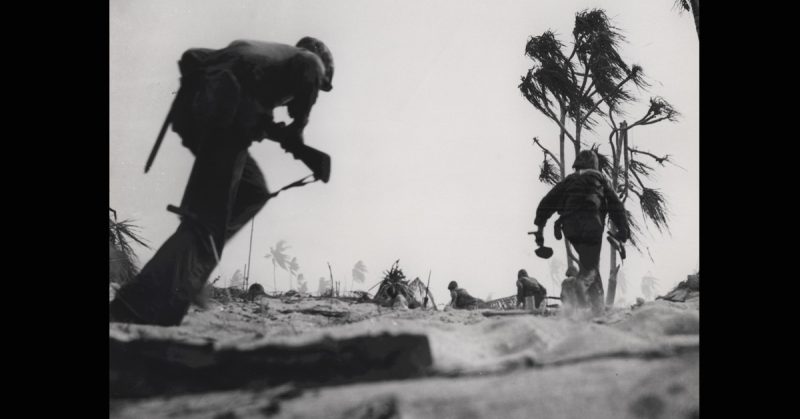A marine killed in a Pacific battle nearly 73 years ago was identified by military officials by using a Boy Scout knife and dental records.
Pfc. George Traver’s remains were found in a mass grave in May 2015 on the island of Tawara in the South Pacific. After joining the Marines in 1942, Traver’s mother sent him the pocket knife.
“When we got the report back from the recovery team one of the artifacts that they found on him was a knife, and the description of it was a 3-inch or a 4-inch knife blade, bone case covering, and a Boy Scout emblem on it. So it was almost like he carried something that meant something to him so much and mentioned about being home,” stated Traver’s nephew, George Traver.
On Nov. 20, 1943, Marines attempted to take the island from the Japanese, and this was when Traver was killed. After days of fighting, nearly 2,000 marines and sailors were injured, and 1,000 were killed in action.
The mass grave was discovered by Florida-based group History Flight. It contained the remains of 35 fallen Marines.
“His mother lived to be 90-years-old and right up until her dying day she was hoping to hear something about George and get him back, she tried and tried. Never happened,” relative Al Wheeler said.
Traver’s first funeral in 1944 was called off because the remains could not be located; the family is planning the second funeral in Chatham on August 28.
His, headstone in Chatham Rural Cemetery, reads, “Private First Class George H. Traver 1943, killed in action and buried at Tarawa.”
Nephew George Traver said that this funeral was not only for his uncle. “This is for all the other families that have lost their men and stuff,” George Traver said, “And I think if my uncle was here he’d say the same thing.”
